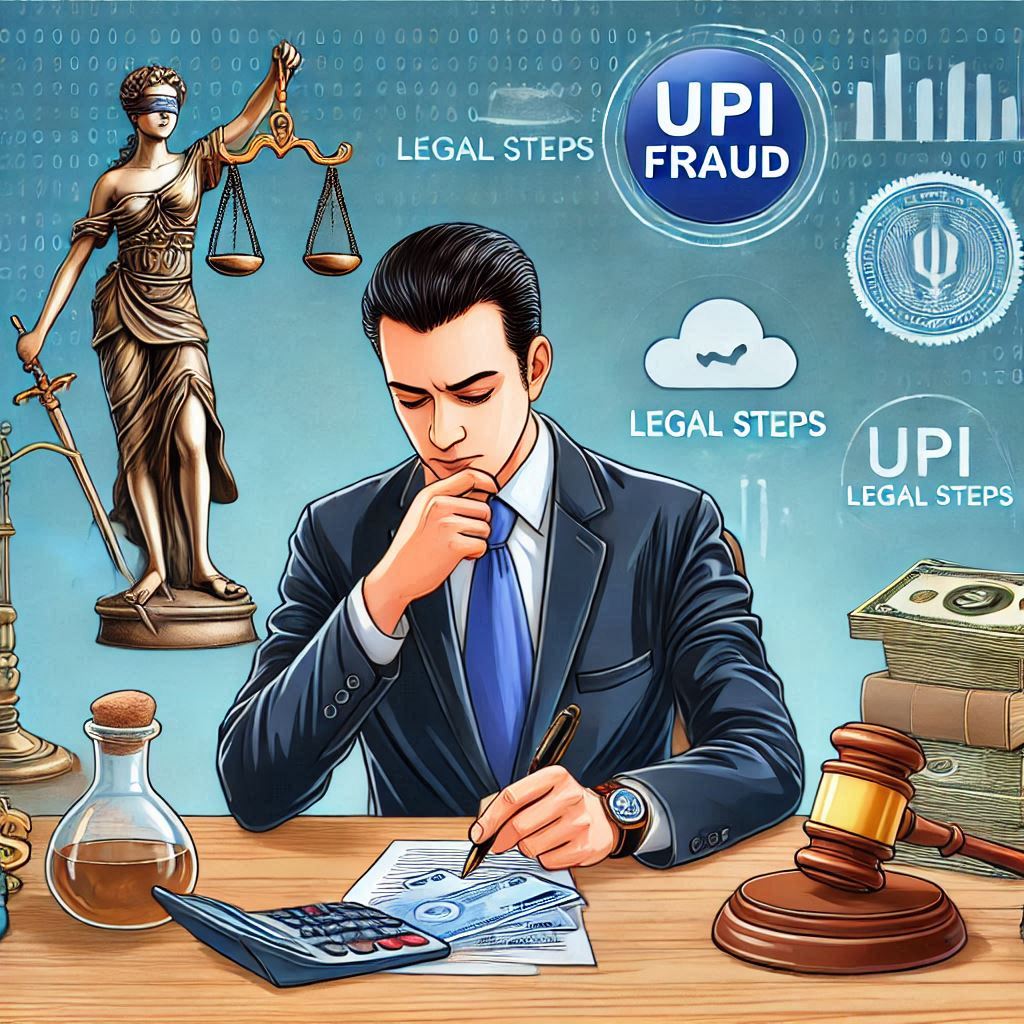Digital money transfers are easy and fast, thanks to the UPI. Criminals utilise it to defraud others. Because con artists employ different tactics to steal money from people unaware of what is happening, UPI theft has become a significant issue. Hackers continually try new tricks, such as hacking, making false money requests, or impersonating banks.
This information is for UPI fraud victims and others who wish to stay protected. It includes simple instructions and legal aid. Knowing how UPI fraud works and what to do about it can help you secure your money and handle any fraud-related problem that may arise.
Never Share Your UPI PIN or OTP
One of the most essential digital payment guidelines is to keep your UPI PIN and OTP private. Fraudsters often impersonate bank officials, friends, or the government and ask for your PIN or OTP to repair an issue or complete a transaction. However, never disclose this private information.
Your UPI PIN is a digital signature that allows users to use your money. An OTP is a one-time code for one operation. Someone can access your UPI account and take your money. If you provide this data, remember that no actual business, not even your bank, would ask for your UPI PIN or OTP over the phone or via SMS.
Avoid unsolicited calls or messages requesting this information. Real banks and UPI service providers never request your PIN, password, or OTP. Hang up immediately and notify your bank or UPI provider if you suspect a scam.
Never Give Access to Your Phone or Computer
Scammers generally require your phone or computer to steal UPI. They don’t need individual passwords. Remote access technologies let fraudsters take control of your device, steal your data, or conduct trades without your consent.
Untrustworthy people shouldn’t use their phones or computers remotely. When asked to install an app for “technical support” or “fix an issue,” be sceptical. Fraudsters conduct bogus customer support calls to get device access. If someone enters your device, they can steal your passwords, PINs, and security codes or withdraw money from your bank account.
Computer and phone security are crucial. Do not download suspicious applications or click on unknown email or text links. Use a respected company’s customer care number for IT support. Only let people onto your device if they verify their identity, especially if they claim to be from a bank or technical support.
Regularly Change Your UPI PIN
Change your UPI PIN often to protect your banking information, but many must remember. Security risks exist if data breaches, scammers, or rogue software steal your UPI PIN.
Though cumbersome, updating your UPI PIN periodically reduces the risk of unauthorised access. Changing your PIN in most UPI applications is simple—go-to protection settings. Make sure your PIN is firm and hard to guess. Try to create a safe, easy-to-remember random blend.
After updating your UPI PIN, log out of your applications while not in use, especially on public devices. That makes it harder for someone to access your account when you’re not looking.
Be Careful About Payment Requests
Beware of UPI payment solicitations. Scammers send bogus payment requests that seem authentic. They may pose as a friend or corporation and request payment.
Check your understanding twice before paying. If the request looks strange or from someone you don’t know, don’t pay. Contact the individual or company before transferring money. Be cautious when asking for money that appears too good to be true, which it generally is.
Scammers may fake scenarios to frighten you into paying soon. Stop and consider if you need help with what to do. Before making a payment that might result in fraud, examine the request.
How to Act Quickly if You Are a Victim of UPI Fraud
UPI fraud victims shouldn’t panic. Moving immediately to minimise harm is highly crucial. First, block your UPI account. Request that your bank freeze your account or turn off UPI services to prevent further unlawful activity.
Inform someone about the deception. Anyone in India can report cyber crime using the National Cyber Crime Reporting Portal or Cyber Crime Cell. Include transaction IDs, UPI names, and scammer messages. The police may assist you in discovering the thief and recover your money.
Also, contact the police. Telling the police about the UPI scam enhances your chances of getting your money back and prevents it from happening again. Write down everything you say to the bank and police for subsequent reference.
Conclusion
UPI makes sending and receiving money more straightforward, but there are hazards. UPI theft may happen to anybody, but if you take a few basic actions, including never disclosing your PIN or OTP, never letting someone access your phone remotely you can reduce your risk.
Those who fall into scams must take legal advice from an expert lawyer. Report the fraud to your bank and police, then discontinue using UPI. If you follow these measures, you can recover stolen funds.

